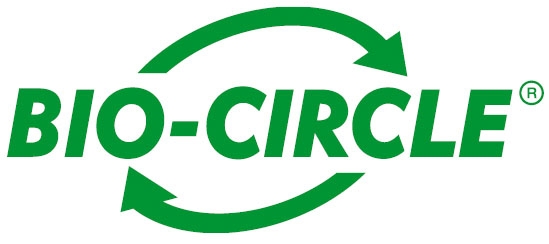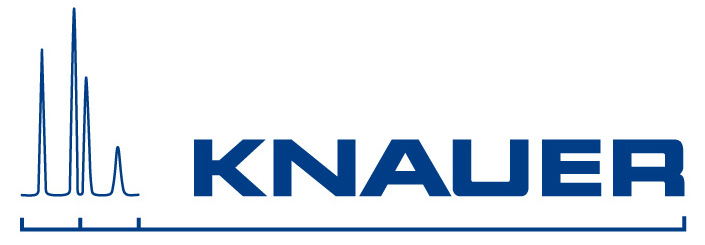Team:Bielefeld-Germany
From 2012.igem.org
(Difference between revisions)
| Line 1: | Line 1: | ||
{{Team:Bielefeld/Head}} | {{Team:Bielefeld/Head}} | ||
| - | |||
<html> | <html> | ||
| + | |||
| + | <script type="text/Javascript" charset="utf-8"> | ||
| + | $(window).load(function() { | ||
| + | $('.flexslider').flexslider({ | ||
| + | animation: "slide", | ||
| + | }); | ||
| + | }); | ||
| + | |||
| + | |||
| + | </script> | ||
| + | |||
| + | <div id=main-content> | ||
| + | |||
| + | <div class=clear></div> | ||
| + | |||
| + | <div class=page-content-full> | ||
| + | |||
| + | <div class="flexslider"> | ||
| + | <ul class="slides"> | ||
| + | <li> | ||
| + | <div class="frontpage-slide"> | ||
| + | <a href='https://2011.igem.org/Team:Alberta/project'><img src="https://static.igem.org/mediawiki/2011/c/cb/Alberta_theplan.png"></a> | ||
| + | <div class="slide-right-col"> | ||
| + | <div class="slide-heading"> | ||
| + | The Plan | ||
| + | </div> | ||
| + | How do you get fuel from waste? Learn about | ||
| + | Team Alberta's progression from by-product | ||
| + | biomass to a viable biodiesel. | ||
| + | <p><a href="https://2011.igem.org/Team:Alberta/project"> | ||
| + | Click here to read more... | ||
| + | </a></p> | ||
| + | </div> | ||
| + | <div class=clear></div> | ||
| + | </div> | ||
| + | </li> | ||
| + | <li> | ||
| + | <div class="frontpage-slide"> | ||
| + | <a href="https://2011.igem.org/Team:Alberta/Methodology/Protocols"><img src="https://static.igem.org/mediawiki/2011/c/c4/Alberta_theprocedure.png"></a> | ||
| + | <div class="slide-right-col"> | ||
| + | <div class="slide-heading"> | ||
| + | The Procedure | ||
| + | </div> | ||
| + | New organisms require new | ||
| + | techniques. Learn how Team Alberta | ||
| + | progressed from an idea to a reality | ||
| + | and the steps required to get there. | ||
| + | |||
| + | <p><a href="https://2011.igem.org/Team:Alberta/Methodology/Protocols"> | ||
| + | Click here to read more... | ||
| + | </a></p> | ||
| + | </div> | ||
| + | |||
| + | <div class=clear></div> | ||
| + | </div> | ||
| + | </li> | ||
| + | <li> | ||
| + | <div class="frontpage-slide"> | ||
| + | <a href="https://2011.igem.org/Team:Alberta/Achievements/ProofofConcept"> | ||
| + | <img src="https://static.igem.org/mediawiki/2011/2/27/Alberta_theproduct.png"> | ||
| + | </a> | ||
| + | <div class="slide-right-col"> | ||
| + | <div class="slide-heading"> | ||
| + | The Product | ||
| + | </div> | ||
| + | Biodiesel is a viable fuel. See our | ||
| + | fuel in action and learn about Team | ||
| + | Alberta's plans to make biodiesel | ||
| + | production and usage even easier. | ||
| + | <p><a href="https://2011.igem.org/Team:Alberta/Achievements/ProofofConcept"> | ||
| + | Click here to read more... | ||
| + | </a></p> | ||
| + | </div> | ||
| + | <div class=clear></div> | ||
| + | </div> | ||
| + | </li> | ||
| + | <li> | ||
| + | <div class="frontpage-slide"> | ||
| + | <a href="https://2011.igem.org/Team:Alberta/HumanPractices/Bioreactor"> | ||
| + | <img src="https://static.igem.org/mediawiki/2011/5/5a/Alberta_thepotential.png"> | ||
| + | </a> | ||
| + | <div class="slide-right-col"> | ||
| + | <div class="slide-heading"> | ||
| + | The Potential | ||
| + | </div> | ||
| + | Home production and commercial production are | ||
| + | viable options for our biodiesel production | ||
| + | methods. See Team Alberta's plan to make a | ||
| + | small laboratory process into small scale | ||
| + | bio-production and large scale. | ||
| + | <p><a href="https://2011.igem.org/Team:Alberta/HumanPractices/Bioreactor"> | ||
| + | Click here to read more... | ||
| + | </a></p> | ||
| + | </div> | ||
| + | <div class=clear></div> | ||
| + | </div> | ||
| + | </li> | ||
| + | </ul> | ||
| + | </div> | ||
| + | </div> | ||
| + | |||
<body> | <body> | ||
Revision as of 06:31, 9 September 2012
Our Project - Abstract
The birth control pill is a widespread contraception method. However, large amounts of these modified estrogens leave the body again in urine. The conventional methods in sewage treatment plants are unable to treat waste water sufficiently because the most frequently used estrogen ethinylestradiol is very difficult to break down. As a result, the hormone finds its way into rivers and lakes and accumulates in drinking water with serious consequences for fish and other aquatic life. These range from reproductive and severe developmental disorders to the formation of female sexual characteristics in males. The long-term consequences of increasing estrogen pollution for human beings are still largely unknown. Nonetheless, declining sperm counts and thereby increasing infertility in men living in industrial nations may well relate to this hormonal pollution. In addition, testicular and prostate cancers as well as osteoporosis could be a consequence of overly high concentrations of estrogen in the human body.
The goal of Bielefeld’s iGEM team is to develop a biological filter using immobilized laccases to purify municipal and industrial wastewater from synthetic estrogens and other aromatic compounds. Laccases are copper-containing oxidase enzymes found in many organisms, and one of their properties is the ability to break down a wide range of aromatic and phenolic compounds. For this purpose, genes of various bacterial and eukaryotic laccases should be isolated and expressed in Escherichia coli and Pichia pastoris. The team is aiming to manufacture this enzyme economically and safely with the help of methods from synthetic biology. It should also be possible to extend the concept to other, in part poisonous and carcinogenic pollutants in drinking and waste water, as well as into industrial application, such as in paper and textile industries or even for bioremediation of contaminated soil.
Introducing the iGEM Team Bielefeld 2012
News
28
August
Our first Laccase
Today we finally identify our first laccase produced by our selfs!! .
|
coming soon!
|
Our Partners
| 180px |  |  | 
|
 |  |  | |
 |  |  |
 "
"










